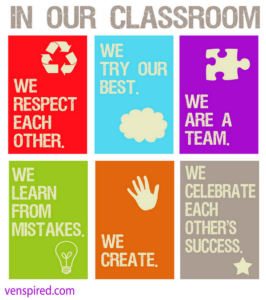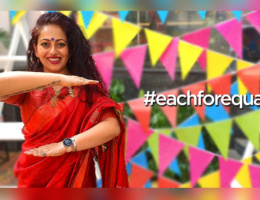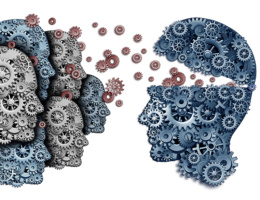Treating Each Other Right – Etiquettes/Manners
“Etiquette” is a code of polite conduct, a set expectation of social behaviour. Its spectrum is inclusive of manners.

For the last few months I have come across many people, both adults and kids who just do not know how to conduct themselves in a given situation or how to express their opinion or displeasure in a dignified or as a generalisation in a more respectful manner.
Came across an Administrative head, who, while I was sitting in the lobby of a reputable organisation on the sofa while waiting for my ride, just came across and said “Who are you waiting for? Keep your bags down they are dirty!” I was very alarmed however the positive me took the initial shock and calmly put the bag (which was my kid’s school bag and in no way dirty) on the floor and politely just looked away, I do not like to entertain or associate with drama.
This was a very rude shock and also the lady in question was in definite need of some corporate etiquette training. Point one being she could have greeted, and enquired with a smile, the purpose of my visit; and point two being if someone is sitting in a reception lobby they will definitely put their luggage etc on the seat or table unless it’s a huge thing and whoever found school bags dirty and hindering the sitting area in any way that too in a completely empty lobby.
Another incident while dealing with a group of kindergarteners, I happened to come across a child who is always making faces if pointed out to for correction or just generally asked a question in order to encourage participation in class with fellow students. Luckily the kid’s mother dropped and picked up the kid from the sessions. So the next morning I struck up a conversation with the mom and realised that the mother made the similar facial expressions without any explainable reason and smirked. It was like just asking her any question was an exercise in annoyance to her.
Very disrespectful responses and hence the child is copying the same. Most definitely needed a run though social etiquette in dealing with other human beings. Adults need to understand the fundamental fact that children often look up to them and model themselves around them so as you sow, so you shall reap.
 If you want your kid to listen to you, then you need to listen first. You want them to speak nicely; then you have to speak respectfully with your peers and see them copy. Basic manners can be learned from the environment and conditions we create for our kids. Saying their “thank you”, admitting to mistakes and taking ownership, sharing and helping colleagues, expressing displeasure or differences of opinion in a dignified manner are some rudimentary etiquettes that all school, Corporate and families should follow.
If you want your kid to listen to you, then you need to listen first. You want them to speak nicely; then you have to speak respectfully with your peers and see them copy. Basic manners can be learned from the environment and conditions we create for our kids. Saying their “thank you”, admitting to mistakes and taking ownership, sharing and helping colleagues, expressing displeasure or differences of opinion in a dignified manner are some rudimentary etiquettes that all school, Corporate and families should follow.
Not looking at mobile phones while speaking or eating, pulling the door open for colleagues, always waiting for host to start the toast at a meal, respecting the rituals of individuals, offering to help with dishes after a meal at someone’s house where you are invited are all basic good manners and etiquettes that when practised can be mirrored by kids.
Being rude and disrespectful shows your character and not the other persons and what goes around comes around. Pushing chairs back after finishing, returning things to owner after borrowing, saying sorry even though any incident happened accidentally, saying “No” assertively and not aggressively, showing empathy to someone grieving or ailing, being polite in pointing out errors or while requesting others to follow certain rules that they might not otherwise adhere to are certain social etiquettes that go a long way in shaping a more refined character and a well rounded human being .
So have you seen anyone recently alienating from basic social etiquettes?
If so then do not forget to politely put it across to them, better now than never.
Image Courtesy – Pinterest,
- Pooja Guha-Bansode
- November 2, 2017
- 0 Comment






